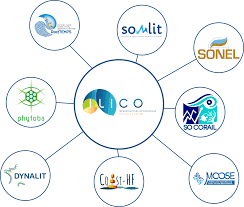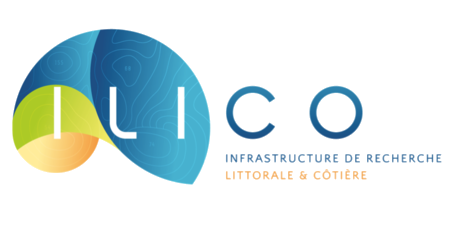IR ILICO - Infrastructure de Recherche
Created in 2016, the Coastal Research Infrastructure (ILICO) aims to observe and understand coastal and marine environments and ecosystems in their entirety. Thus, ILICO brings together a set of observation devices to collect samples and deploy various measuring instruments by federating 8 observation services, known as "elementary networks" that are: COAST HF, CORAIL, DYNALIT, MOOSE, PHYTOBS, ReefTEMPS, SOMLIT and SONEL (and BenthOBS, whose application for SNO labeling is underway). Long-term monitoring also facilitates the understanding and anticipation of certain large-scale processes and phenomena that can impact coastal and littoral zones (quantification of the impact of certain extreme or intermittent events such as tsunamis or cyclones).
ILICO aims to become a structuring and essential element of the research landscape for the topics it covers, at the national and European levels. As such, it also leads a network of marine laboratories that ensures cross-cutting scientific reflection and foresight. 
ILICO federates 9 observation services called "elementary networks" that share the same interest in the study and monitoring of marine and coastal environments.
UMR ENTROPIE is in charge of the elementary network ReefTEMPS, a network of temperature sensors on the coastal domain of about twenty territories and island states in the South, Southwest and West Pacific for the long-term monitoring of climate change and its effects on the state of coral reefs and their resources.
